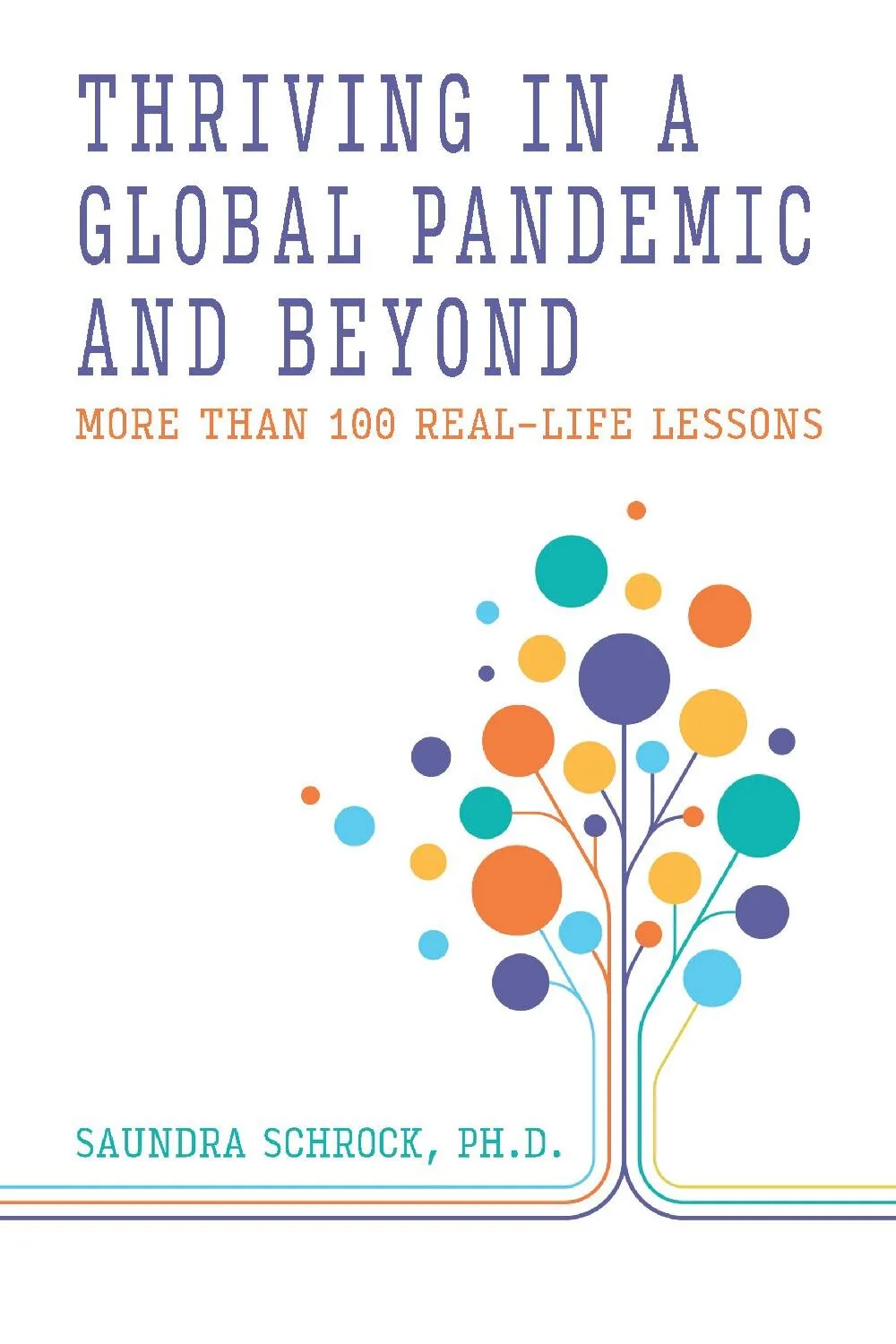We Are Not Helpless
Instability, disruptions to our routines, and lack of clarity about small and large decisions are all sources of uncertainty (Buheji et al., 2020). As this period of uncertainty continues, we are likely to be more confused, distressed, angry, and have an overall negative view of life. Yet, studies confirm that accepting to live with the reality of ambiguity enhances our ability to deal with all possibilities and to confront sudden events with more confidence. Living with uncertainty helps us plan for today and tomorrow.
Want more tips to live a healthier and happier life? Check out Saundra’s latest book here.
Different Coping Strategies
To navigate today’s environment, it is critical that we become aware of the coping strategies we are using. Coping strategies are efforts to manage distress, although they are not always effective at doing so. Some coping strategies (e.g., acceptance, seeking support) are associated with greater psychological health than other, more maladaptive strategies (e.g., self-blame, denial, Hagan et al., 2017). That’s because research shows that our ability to tolerate uncertainty will influence how we respond and cope with a situation (Rettie & Daniels, 2020).
Less of This: Unproductive Coping Strategies
To cope with uncertainty, we need to engage in active coping strategies instead of unproductive ones, such as worrying about predicting the future. It is natural to want to use worry as a coping mechanism because it gives us control over uncertain situations. However, it will not help us find a clear, outcome-based solution. Constant worry keeps us unfocused and dissipates our energy to manage uncertainty. Unfortunately, we may have developed coping strategies that are not helping us deal with uncertainties. Look at the following to see if any of these apply to you:
Over-preparation, which may involve repeated questioning or extensive internet searching etc.
Under-engagement behaviors such as procrastination, distraction, information avoidance, etc.
‘Dither” behavior is the failure to choose a course of action or feeling “frozen.”
Impulsive behavior includes doing something to eliminate uncertainty, even when we know it may be a wrong choice.
Flip-flop behavior is switching between over-preparation, under-engagement, and impulsive behaviors.
More of This: Productive Coping Strategies
Considering reports of escalating COVID-19 cases, we can choose our response. Taking proactive steps to protect our mental health is a necessity, especially with the length of time we have been under this level of uncertainty. Here are a few ideas to get you started in protecting your mental health.
Separate what is in your control from what is not. For example, focus on things in your control, such as washing your hands, wearing your mask, getting vaccinated, eating, sleeping well, and limiting your news consumption. Do this instead of focusing on what is not in your control, such as the decisions and behaviors others are making.
Do things that help you feel safe. What makes you feel safe is probably different from what makes someone else feel safe. For example, you may not feel safe in large social events. At the same time, others feel comfortable doing that. Do what works for you.
Spend time outdoors. Plan time each day to enjoy nature, even if it is a small patch of grass near your home.
Find time for physical activity. Studies show that a reduction in physical activity is highly likely to significantly and negatively impact both our physical and mental health (Ammar et al., 2020).
Challenge yourself to stay in the present. Most of our stress comes from worrying about the future and ruminating over the past. When you find yourself worrying about something, take a moment to say out loud, “in the moment, everything is fine.”
Stay connected with others. Make sure you find a small group of trusted friends and family that you can express your feelings.
Reach out to a professional. If you have tried the above activities and are still struggling, please reach out to a mental health provider. Asking for help is not a sign of weakness or failure. On the contrary, it is a sign of strength and courage.
Many of us are still trying to live in the past and/or are preoccupied with the future. We need to learn to live in an environment that can change quickly and unpredictably (Buheji et al., 2020b). Stay tuned for more tips in the coming weeks. Next week’s blog explores how a positive mindset can also help us deal with uncertainty in a productive way.
References
Ammar, A., Brach, M., Trabelsi, K., Chtourou, H., Boukhris, O., Masmoudi, L., Bouaziz, B., Bentlage, E., How, D., Ahmed, M. (2020). Effects of COVID-19 home confinement on eating behavior and physical activity: ECLB-COVID19 international online survey results. Nutrients, 12 (6), 1583.
Buheji, M (2020a) Coronavirus as a Global Complex Problem Looking for Resilient Solutions, Business Management and strategy, Vol. 11, No. 1, 94-109.
Buheji, M., Ahmed, D., & Jahrami, H. (2020b). Living uncertainty in the new normal. International Journal of Applied Psychology, 10(2), 21-31.


